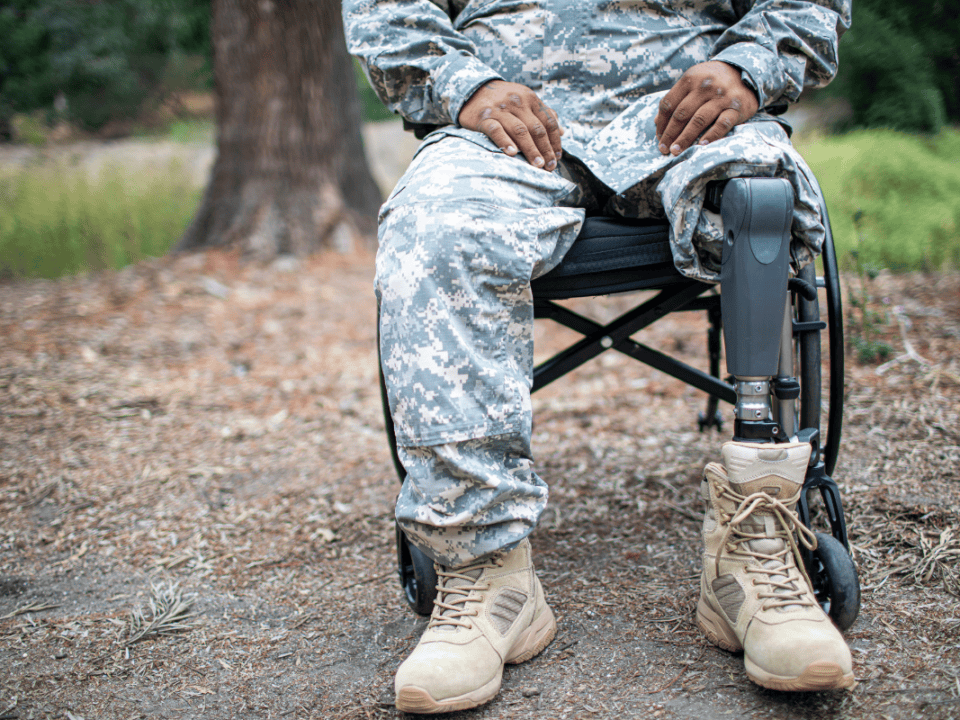 In our last blog, we looked into ways to protect yourself and your loved ones from medical malpractice as a result of VA care.
In our last blog, we looked into ways to protect yourself and your loved ones from medical malpractice as a result of VA care.
Unfortunately, medical malpractice isn’t limited to care received at private medical facilities or in hospitals — veterans have also found themselves subject to sometimes serious injuries as a result of care they received at the VA.
Current servicemembers and military veterans who have suffered as a result of medical malpractice at the VA do have options! Today, we’ll take a look at the two ways to seek a remedy, the steps included, and why it’s important to have legal representation.
Filing a Claim Under Section 1151 With the VA
The first route when seeking a remedy after being injured due to VA care is to file a claim for a Section 1151 benefit based on VA negligence.
Claims filed under Section 1151 go through the VA’s own adjudication process, where the following requirements must be met:
- The individual must be a veteran
- The individual must have a disabling condition that is the result of or has been aggravated due to VA-sponsored medical treatment or training
Medical evidence must show that the individual filing under Section 1151 has:
- An additional disability (or disabilities)
- An aggravation of an existing injury or disease
Essentially, evidence needs to prove that the new injury or disability was the direct result of fault on the part of Veterans Affairs, whether through carelessness, negligence, lack of proper skill, or an error in judgment.
You’ll need to prove that the outcome was not something that could reasonably be expected as a result of complication from VA treatment, or that the injury or disability came as a direct result of participation in a VA Vocational Rehabilitation and Employment (or work therapy) program.
Wonder what sort of situations would fall under Section 1151? Here are a few examples:
- A veteran is disabled as a result of mistakes made by a surgeon during surgery at a Veterans Affairs hospital.
- Due to a delay in receiving a diagnosis, a veteran suffers disease or disability that ends up much worse than it would have been without the delay in diagnosis.
- A veteran training under VA Vocational Rehabilitation is injured during on-the-job training, leaving him or her disabled afterward.
Seeking a remedy through the VA is a bit different than pursuing traditional litigation, so it’s worthwhile to meet with a legal representative who has experience working with VA Disability claims.
Since applying for for benefits under Section 1151 goes directly through the VA, you’ll find it useful to work with a legal representative to ensure that your medical evidence and documentation are well-organized. This will help you to be fully prepared for the adjudication process through the VA.
What is the Federal Tort Claims Act?
Your second option after receiving an injury or disability as a result of VA medical malpractice is to file suit against the VA under the Federal Tort Claims Act (or FTCA).
VA-owned hospitals and other Veterans Affairs medical facilities are run by the federal government, so filing a lawsuit against the VA for medical malpractice involves navigating the sometimes complex rules and regulations in the FTCA.
These claims are generally filed directly with the VA or federal agency that oversees the location of your injury.
You can file under Section 1151 as well as under the FTCA, but any benefits received under Section 1151 will be withheld until the FTCA judgment has been offset.
How Does the FTCA Work?
Essentially, the individual veteran files suit against the federal government, alleging governmental injury or negligence. FTCA claims go through U.S. District Courts, and operate largely in the same manner as other civil claims.
If negligence or intentional injury is proven against the VA, the court determines an appropriate amount of recompense that is then due to the veteran to help them recover and compensate for lost wages after their disabling injury.
One large difference between benefits received under Section 1151 and those due to the veteran after filing a successful FTCA claim? The FTCA benefits are paid out in one lump sum.
Section 1151 appeals will continue through the VA, with the Board of Veterans Appeals and other VA-specific avenues being used to file an appeal after an unsuccessful claim, but FTCA claims appeal directly to the U.S. Court of Appeals and potentially the Supreme Court.
Is the FTCA Lump Sum Payment Better?
A lump sum payment may sound better on the surface, but it’s worth taking a closer look into the FTCA process first.
Federal Tort Claims Act claims can be more difficult to prove than those filed directly through the VA. They often involve a higher standard of proof, and there are certain statutes of limitations involved.
Any veteran considering filing under the FTCA should contact a legal representative immediately to look into their options.
This is not to say that filing under the FTCA is the wrong choice for every veteran. In case of an injury that was due to the actions of a VA employee not directly involved in providing the veteran’s healthcare, for example, an individual may not be able to file under Section 1151 but can file under FTCA.
Each veteran’s situation is unique, and the right response may be different for each individual who needs help recovering from a disabling injury they received as a result of care at the VA.
Veteran Looking to File a VA Disability Claim?
Bluestein Attorneys is here to help. Our SC Veterans Advocates team is made up of former servicemembers, who understand the unique structure of military life and have experience helping veterans receive the care and benefits they deserve.
To request your FREE VA Disability consultation, give us a call at (803) 779-7599 or contact us online at any time.




